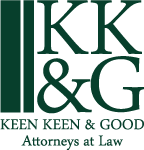
Buying A Home: 7 Key Tips
With the arrival of warm weather and the apparent uptick of the real estate market (however small it may be), the purchase of real estate has become an important issue. Below are a few tips for buyers to consider as they navigate through the real estate market. While some tips seem obvious, our experience in real estate transactions tells us that too often they are not taken seriously, leading to costly complications during (or even after) the purchase or sale of a home:
1. Understand the Neighborhood
After identifying a potential home, take steps to understand the neighborhood. Speak with neighbors and ride around the community. Pay attention to the other homes and visit at different times of the day. While you may be interested in a particular home, you do not want to set yourself up for ongoing disputes with neighbors or issues with restrictive zoning laws, home owners associations, crime or noise.
2. Understand the Home
Thoroughly examine your potential home. Make sure all systems are properly working and that the house is in good repair. Carefully review the Seller’s Disclosure which should detail all of the defects that the seller is aware of. Address any portion of the disclosure that is missing or unclear. Because the seller may not be aware of all potential problems, have the home professionally inspected for a written report detailing any defects. Any issues can be used to negotiate a lower sale price or have the defects fixed or replaced.
3. Financing
Buying a home requires a carefully crafted financial plan. Review factors such as your income, job security, and current debt to formulate an overall budget before you even begin to look. Run the numbers using a mortgage calculator to estimate your monthly bill, but remember to also account for utilities, maintenance, property taxes, and home owners insurance. Once you have calculated your affordable range, begin the process of getting pre-approval from your lender. This additional step provides a baseline for negotiating price and provides an attractive incentive to sellers as it means fewer roadblocks at closing.
4. The Purchase Agreement (Agreement of Sale)
Your goal is to create a purchase agreement that protects your interests and provides reasonable terms given your particular circumstances. While the Pennsylvania Association of Realtors provides a form of agreement, there is always room for negotiation. The agreement should include contingencies, which require that certain conditions, such as financing, inspections, and the removal of encumbrances, are met before you are obligated to follow through with the transaction. Before signing anything, be sure that you are aware of your rights as a buyer in Pennsylvania and that you have thoroughly read and understand what you are signing. Once you have entered into an agreement, it is legally binding. Unless the agreement permits termination, you could lose your deposit or be responsible for damages if you do not proceed with the transaction.
5. Homeowner Insurance
If there is a homeowner’s association (“HOA”), obtain a copy of the HOA documents and carefully review them to determine (1) what your monthly fee will be and (2) the restrictions or expectations they place on your property. Check to determine how often fees will increase and what they cover. Note that HOA rules can often be more restrictive than township zoning ordinances and can restrict your right to have pets, put in sheds or patios, or your ability to have lawn ornaments or dry clothes outside. HOA rules can also require mandatory upkeep on your home that can prove burdensome. Get a sense of how strict the HOA is in managing its properties and enforcing its rules. Since violation of HOA rules often comes with fines, make sure your prospective home is not already in violation.
6. Title Insurance
Order title insurance to protect yourself against defects in title and any unpaid mortgages, judgments or other liens against the property that have not been paid. Review the title search before closing, checking for any pipe lines, utility easements, retention basins, and/or storm water management plans to see if they affect your property in any adverse way. Many times the policy only gives the location of the documents recording any easements or plans (i.e. the deed book and page number). It is important to give yourself time to review the actual documents and ensure that all liens against the property have been paid.
7. Closing
At closing you will be asked to sign a lot of legal documents, such as the mortgage, a buyer’s affidavit, various waivers, and the settlement sheet (“HUD statement”). As with the purchase agreement, carefully review these documents and be sure that you understand what you are signing. If it is possible, review the HUD statement before closing. This document details the parties involved and how the money is being distributed. You need ample time to review this document to make sure that everything is correct and reflects your expectations.
Buying a Home is a Significant Financial Transaction
Assembling a team of experienced professionals to help you buy or sell a home is essential. In addition to an experienced real estate agent, a good real estate attorney can prove invaluable when it comes to protecting your interests and making the transaction process manageable.
The real estate lawyers at Keen Keen & Good have represented hundreds of buyers and sellers and are prepared to assist you whether you are selling or buying a home.
Contact Keen Keen & Good Today! 610.383.7810 or info@kkglawfirm.com


